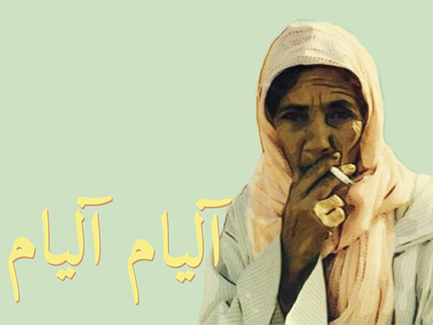ARAB DOCUMENTARY CINEMA
ARAB DOCUMENTARY CINEMA
Documentary film as a genre has seen a kind of resurgence in the last 15 years or so--the proliferation of cheaper and easier to handle digital technology has made it less intimidating for many to take history into their own hands and tell their own stories. Whereas the lumiére Brothers (arguably the godfathers of documentary cinema as we know it) treated people hurriedly vacating a factory as props, those same background extras have now found it far easier to be the protagonists of their own story. The relatively affordable technology, coupled with a general distrust story of the media's ability to properly disseminate information and the fact that broadcast news as a recurrent voice (has for better or for worse) become an ingrained part of our subconscious, ensures that the documentary as an aesthetic permeates the dominant forms of everyday communication.
While this helps to provide a bit of context on a global level to the proliferation of documentary cinema, there is arguably an added factor one must take into consideration regarding the prolific level of documentary film production in the Arab region: the written word-specifically in the form of poetry-was the preeminent way in which histories (personal, social, cultural political) were inscribed in public memory. These free-flowing personal diaries have now become manifest onscreen via the documentary, which is perhaps the only type of cinema that can mimic the same level of freedom of expression allowed in poetry.
Our program for the months of April and May presents a number of documentary films from the region that help to trace the ways in which documentary film language and aesthetics have evolved in the Arab world over time, with a special focus on the late 1970s onwards. We will start with Ahmed El Maanouni's groundbreaking Alyam, Alyam (1978), which deliberately hedged the lines between narrative and documentary, alongside a number of important recent works, such as Hassen Ferhani's Un Rond-Point Dans la Tete,/ A Roundabout in My Head (2015), Abbas Fahdel's Homeland: Iraq Year Zero (2015), and Zeina Dacchace's 12 Angry lebanese (2009), amongst others.
At the heart of this program are two important events we are exceedingly proud to host: a retrospective on the groundbreaking documentarian Omar Amiralay, and a tribute to the underrepresented Egyptian filmmaker Hossam Ali, whose work bears special resonance now more than ever. The career of both filmmakers act as a mirror image to the other Arab documentaries presented here, almost all of which have been produced in wake of the new millennium,
For more info and details about the programme, visit the facebook link below
